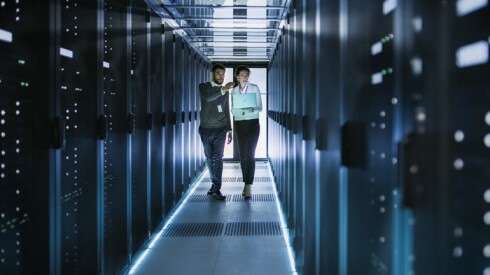-
State governments are expected to deploy AI in 2026 with an increased focus on returns on investment as they face complex policymaking restrictions enacted by a recent executive order signed by President Donald Trump.
-
Georgia regulators unanimously approved a massive expansion of the state's power grid Friday, approving Georgia Power's request for nearly 10,000 megawatts of new energy capacity.
-
New York state Gov. Kathy Hochul signed new legislation on Friday — the RAISE Act — that creates safety requirements for AI developers and establishes a new oversight entity, which will issue annual reports.
More Stories
-
Replika, Kindroid and Character.AI are marketed as entertainment apps or ways to help people develop emotional wellness. But some research shows prolonged interaction can lead to increased feelings of loneliness.
-
The complaint argues that the Constitution does not give the executive branch power "to unilaterally refuse to spend appropriations that were passed by both houses of Congress and were signed into law."
-
A new cybersecurity office aims to centralize oversight, align standards and support risk management across state government, and will be supported by the renamed Office of State Technology.
-
A new executive order in the state calls for the use of agentic AI within a regulatory review process aimed at reducing excessive requirements as part of a broader modernization effort in Virginia.
-
Pennsylvania's House of Representatives unanimously passed a bill regulating the use of deepfakes in election campaigns, joining a growing list of states trying to put guardrails on the technology.
-
Starting this fall, every K-12 district in Missouri, including charter schools, will need a written policy prohibiting students from using personal devices during the school day, with some circumstantial exceptions.
-
Federal legislation signed into law this month rewrites student loan and grant policy with the goal of frugality, with critics warning it may push students toward loans and programs with fewer protections.
-
A new analysis by Code for America illustrates artificial intelligence readiness in the public sector across three key areas: leadership and governance, capacity building, and technical infrastructure and capabilities.
-
New Jersey will study the impact that data centers have on electricity usage and consumer costs under a bill that was passed by the state Legislature last week.
-
Tulsa County commissioners heeded a call from their constituents Monday and postponed for a week a vote on whether to rezone approximately 400 acres north of Tulsa for a planned data center.
-
Illinois lawmakers have so far achieved mixed results in reining in the burgeoning technology, a task that butts up against moves by the Trump administration to eliminate restrictions on AI.
-
The state Attorney General’s office said apartment rents have been kept artificially high in the suit, which alleges antitrust act violations. Several major cities have banned use of software to elevate rents.
-
Lawmakers and Gov. Gavin Newsom reached a spending plan that, by emergency proclamation, enables access to the budget stabilization account. The state’s approved technology spend is reduced from the previous fiscal year.
-
The new website includes a policy FAQ, toolkit and examples that school districts can use to design their own policies to restrict personal devices from being used on school grounds during the school day.
-
Leaders of the NIPSCO utility company were grilled in Indianapolis Tuesday over a proposal to create a new lightly regulated utility called GenCo to fund new data center infrastructure.
-
Cook County Board President Toni Preckwinkle’s office has published the first of what is expected to be several reports detailing the technology delays and assigning blame for where the fault lies.
-
After proposed legislation failed to pass a senate committee, an executive order made Oregon the latest state to restrict student use of cellphones during the school day, requiring districts to write their own policies.
-
To comply with the state's Focus Act, school board members at a district in northern Alabama approved a policy outlining what the instructional day is, what's not allowed and what the exceptions are.





























